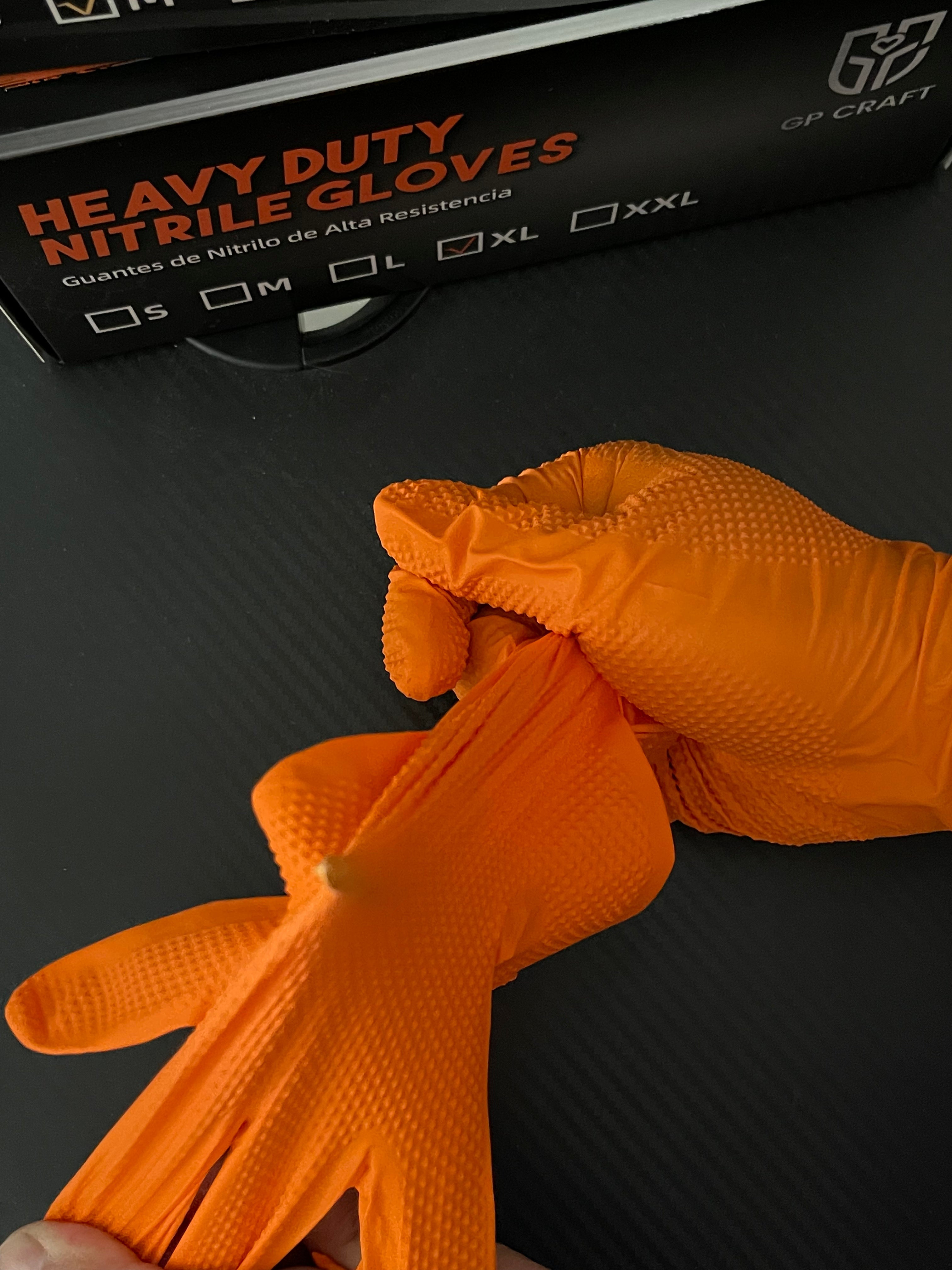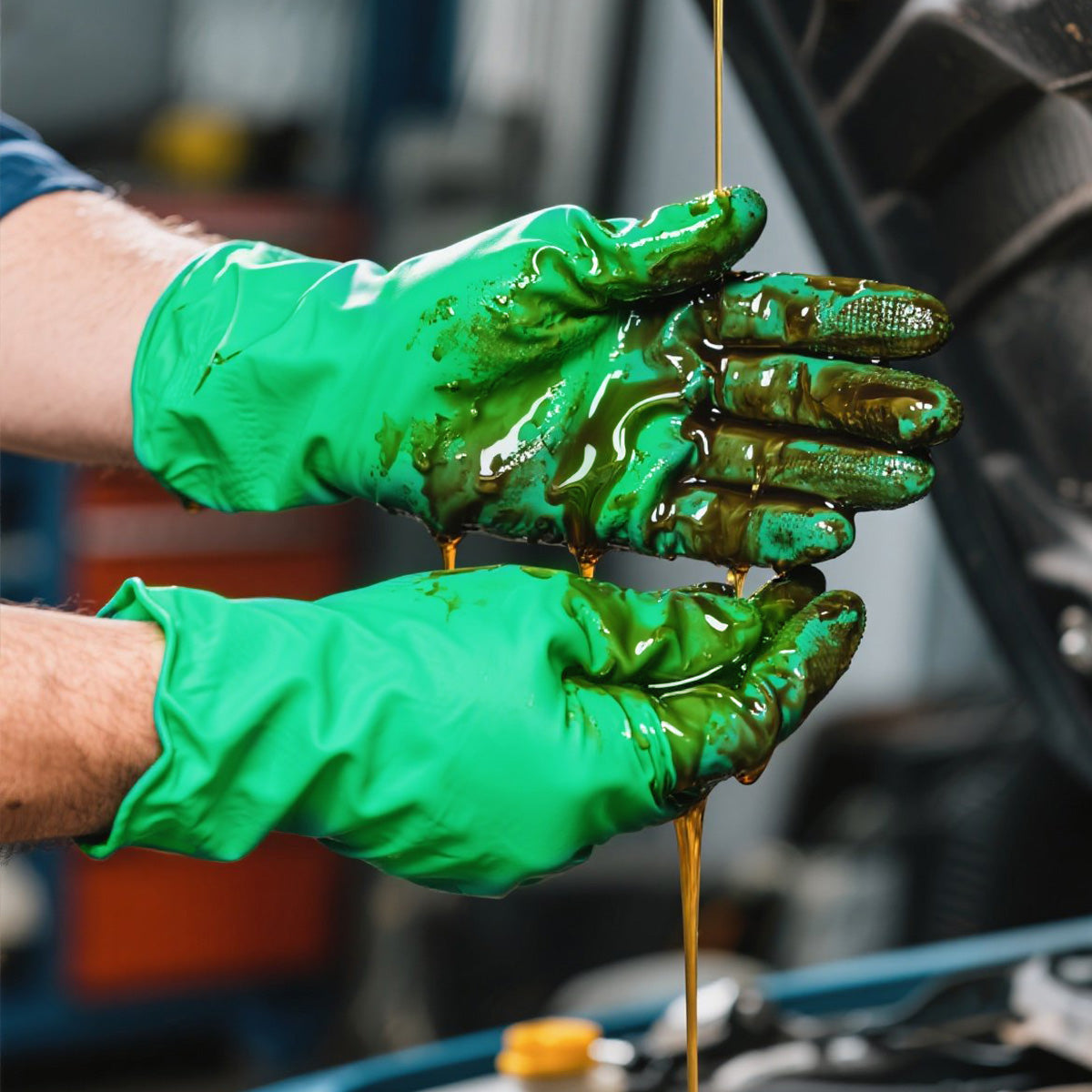Introduction: Understanding Vinyl Gloves in Professional Settings
For hospital procurement managers, manufacturing safety officers, and laboratory suppliers, selecting the right disposable gloves is a critical decision impacting safety, compliance, and operational efficiency. A common question arises: What are vinyl gloves, and are they suitable for professional use?
Vinyl gloves are an economical choice made from PVC (polyvinyl chloride), offering basic protection for low-risk tasks. While they serve certain purposes well, they fall short in high-performance environments where durability and chemical resistance are crucial.
In this comprehensive guide, we'll explore:
✔ What vinyl gloves are made of
✔ Their primary uses and limitations
✔ Why GP GRAFT nitrile gloves are the superior alternative for professional applications
What Are Vinyl Gloves? Composition & Manufacturing
1. Material: Polyvinyl Chloride (PVC)
Vinyl gloves are synthetic gloves made from PVC plastic, blended with plasticizers (like phthalates) to increase flexibility. Unlike latex or nitrile, they contain no natural rubber, making them latex-free.
2. Key Characteristics
· Cost-effective – Cheaper than nitrile or latex
· Latex-free – Safe for users with latex allergies
· Loose fit – Less elastic than nitrile
· Basic barrier protection – Suitable for short-term, low-risk tasks

Common Uses of Vinyl Gloves
Vinyl gloves are ideal for:
✔ Food handling – Short-term food prep where durability isn't critical
✔ Janitorial work – Light cleaning tasks
✔ Hair salons & beauty services – Basic protection from dyes and chemicals
✔ Low-risk medical exams – Non-invasive procedures
However, they are not recommended for:
❌ Healthcare (high-risk procedures) – Poor puncture resistance
❌ Industrial/lab work – Weak chemical resistance
❌ Long-duration tasks– Higher tear risk
The Limitations of Vinyl Gloves in Professional Settings
1. Poor Puncture & Tear Resistance
· 3x more likely to tear than nitrile gloves, increasing contamination risks in medical and industrial settings.
2. Weak Chemical & Oil Resistance
· Degrades when exposed to oils, solvents, and disinfectants—common in healthcare and manufacturing.
3. Contains Plasticizers (Phthalates)
· May cause skin irritation with prolonged use.
4. Loose Fit & Poor Dexterity
· Less elastic than nitrile, leading to slippage and reduced grip.
Why GP GRAFT Nitrile Gloves Are the Superior Choice
For professionals who need durability, chemical resistance, and long-term cost efficiency, nitrile gloves outperform vinyl in every way.
✅ 100% Latex-Free & Hypoallergenic
· Safe for latex-sensitive users, without phthalates.
✅ 3x More Durable Than Vinyl
· Ideal for:
o Healthcare– Resists punctures from needles
o Manufacturing– Withstands cuts from sharp materials
o Labs – Protects against chemical exposure
✅ Superior Chemical Resistance
· Handles oils, solvents, and disinfectants without degrading.
✅ Better Fit & Comfort
· GP GRAFT nitrile gloves feature:
o Ergonomic design– Reduces hand fatigue
o Textured fingertips – Improves grip
GP GRAFT Nitrile Gloves: The Professional-Grade Solution
For organizations prioritizing safety and efficiency, GP GRAFT offers:
✔ Medical-grade protection– FDA, ASTM, and OSHA compliant
✔ Powder-free & hypoallergenic– Safe for sensitive skin
✔ Bulk purchasing options– Cost-effective for large-scale use
✔ Multiple thicknesses (3mil to 8mil)– Customizable for different needs
Conclusion: When to Choose Vinyl vs. Nitrile Gloves
While vinyl gloves serve basic needs, GP GRAFT nitrile gloves provide:
✅ Stronger protection– Fewer tears and punctures
✅ Better chemical resistance – Safer for healthcare and industry
✅ Long-term savings– Fewer glove changes = lower costs
Upgrade to professional-grade protection today! Contact GP GRAFT for bulk nitrile glove solutions tailored to your industry.



